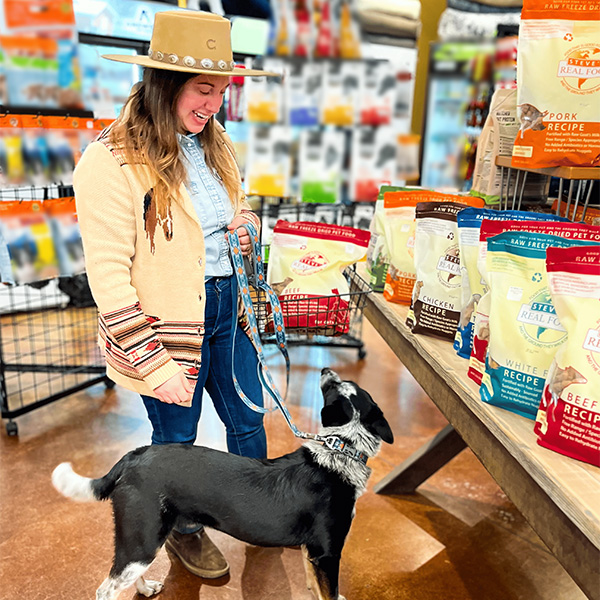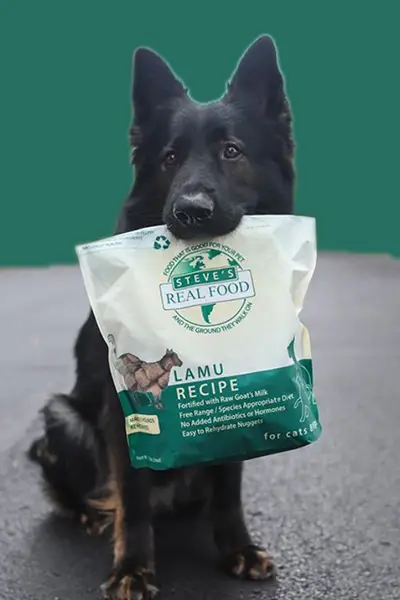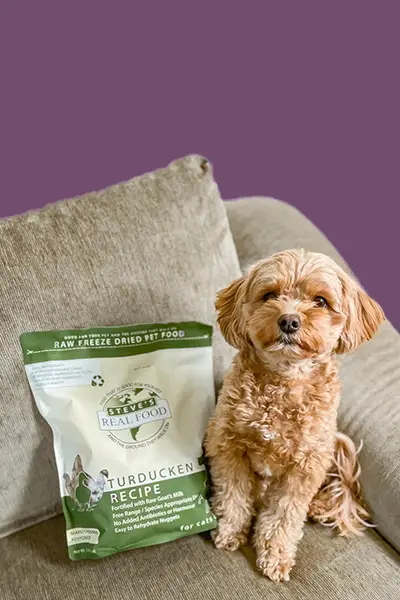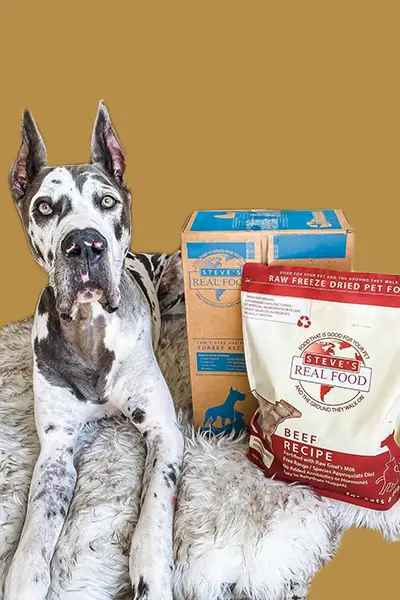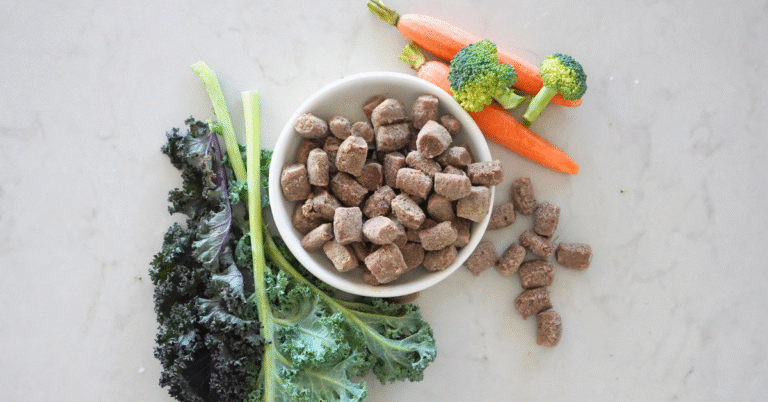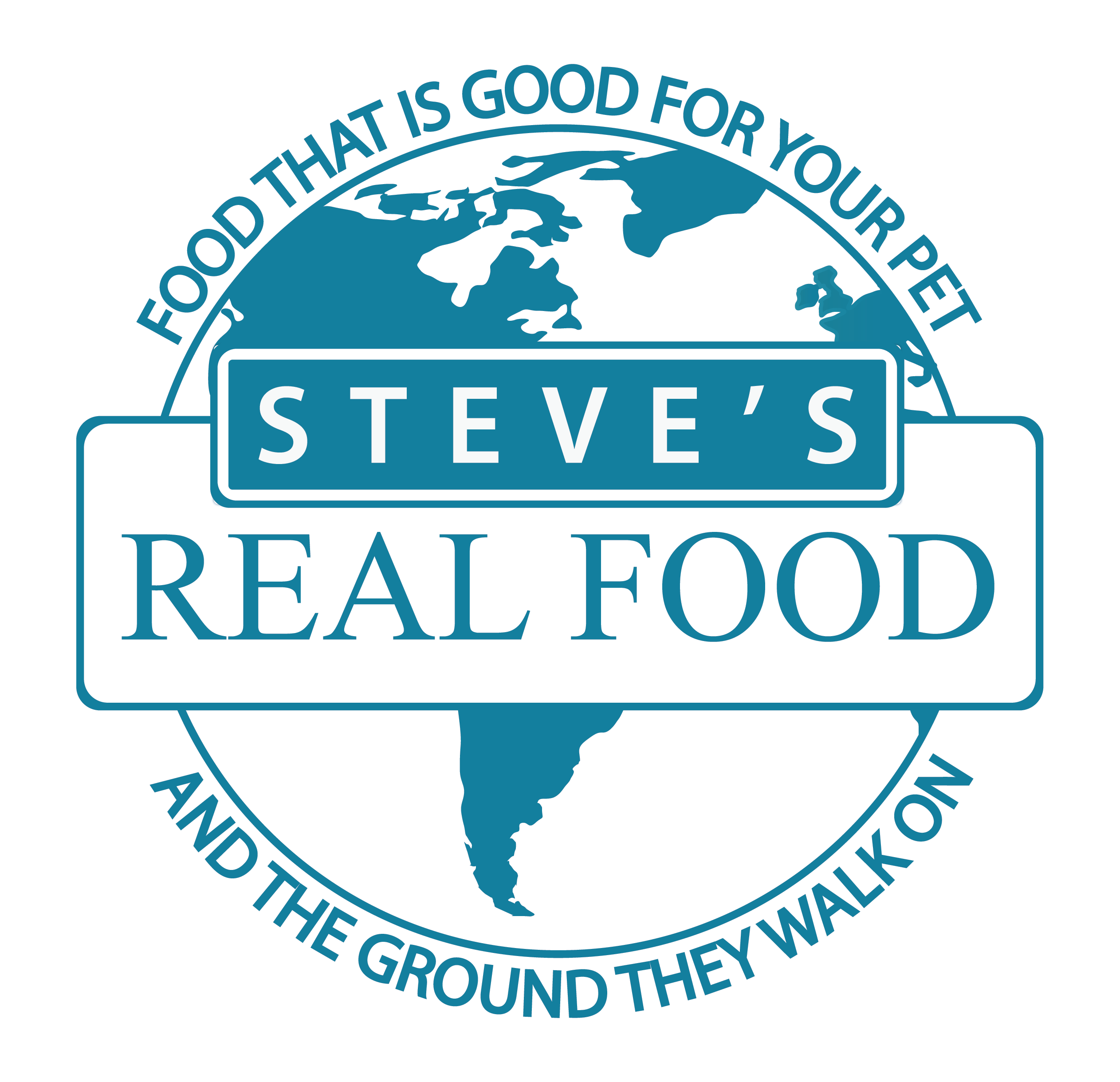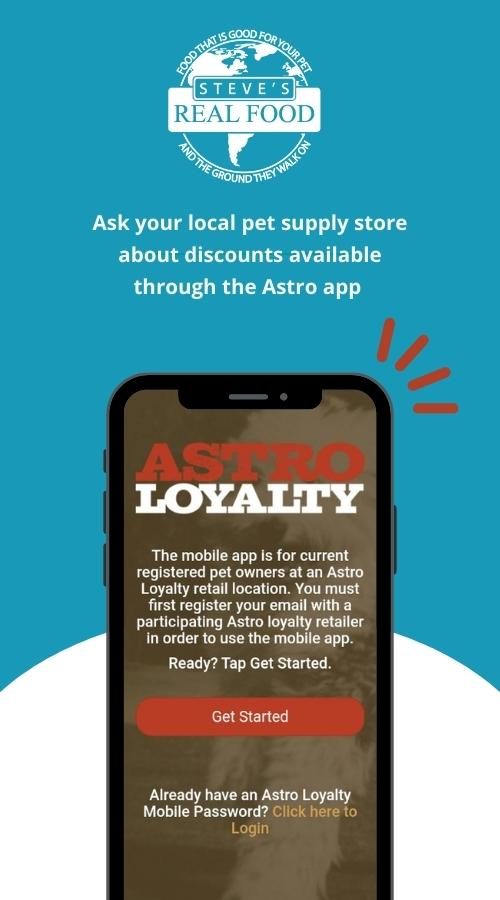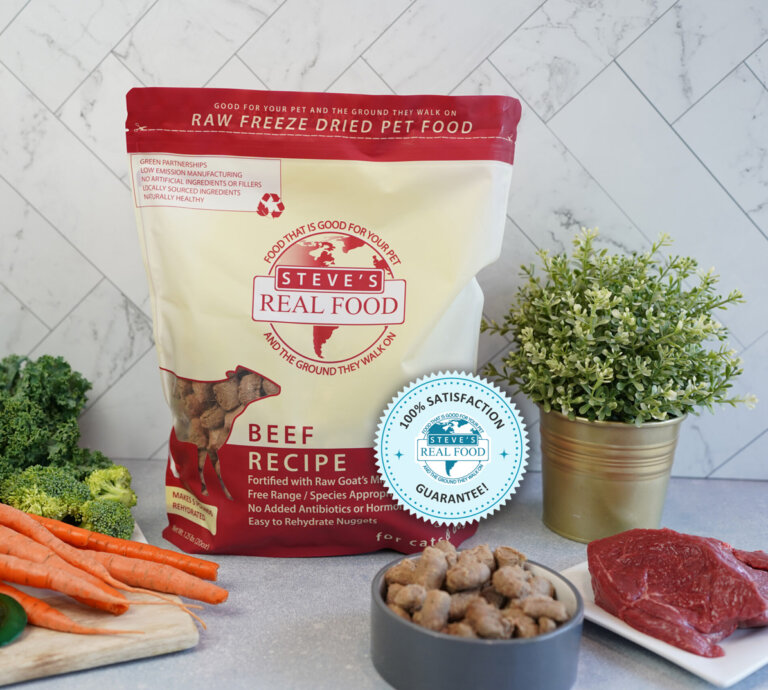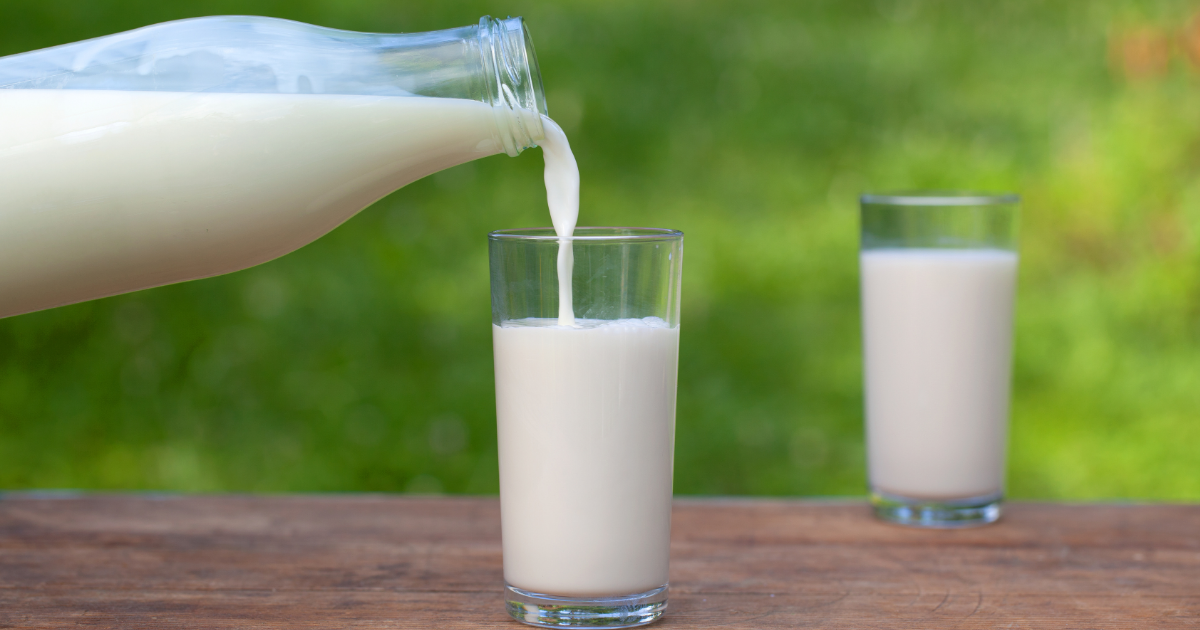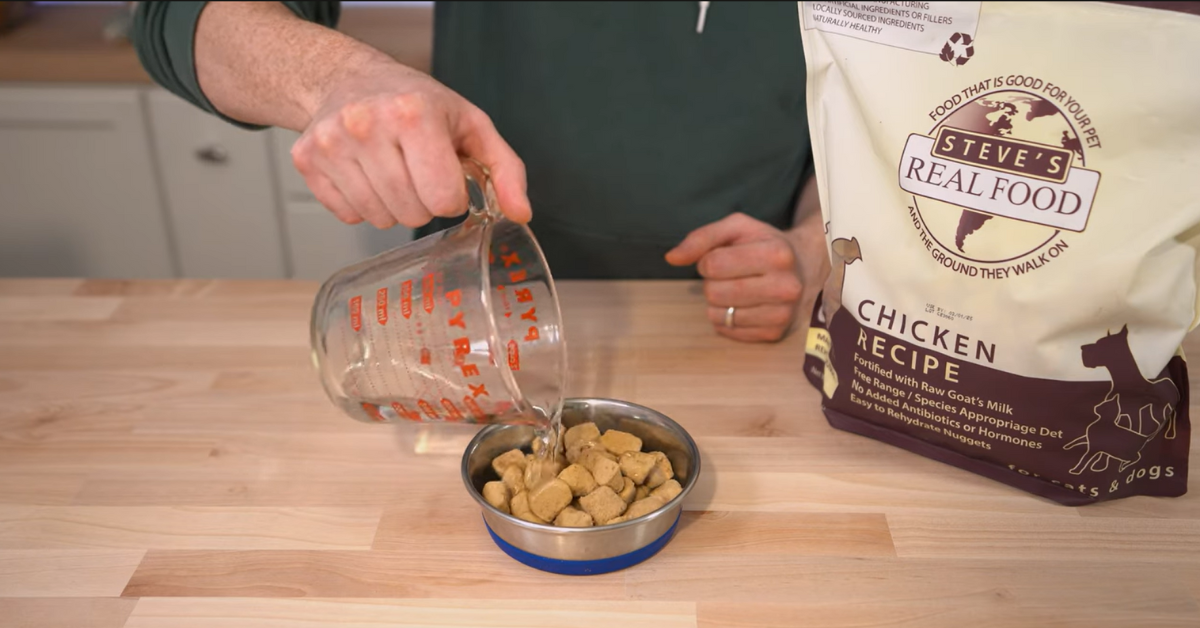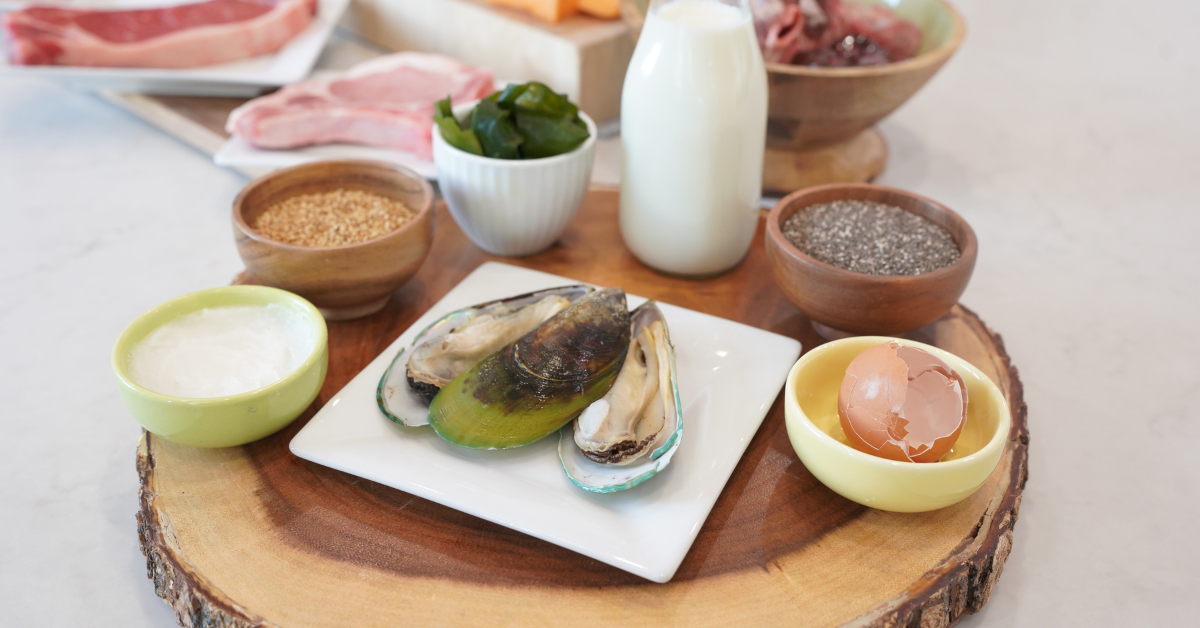Did you know that more people drink milk from goats than from any other animal worldwide?
Yet here in the US, less than 5% of people regularly drink goat milk! With small (but increasing) popularity, it’s no wonder that most people aren’t aware of the great benefits of goat milk for dogs and cats. So, let’s take a look at what those benefits are and how you can incorporate goat milk into your pet’s daily diet!
Easily Digestible: Raw goat milk has smaller fat particles, which produce a smaller, softer curd in the stomach. These curds are much easier for the body to break down in the gut and intestines. Goat milk is also low in milk sugars (lactose).
High in Fatty Acids: High amounts of short- and medium-chain fatty acids provide an energy boost without storing “extra” as fat, can help lower bad cholesterol (LDL) while raising good cholesterol (HDL), and can even help prevent coronary and intestinal disease. Even though they provide the same amount of energy for the body, they have fewer calories and are much more easily digested.
Helps Reduce Inflammation: Raw goat milk contains oligosaccharides and a unique enzymatic composition that soothes gut inflammation. Oligosaccharides act as prebiotics in the colon; promoting healthy gut flora, lowering occurrence of inflammation-causing bacteria, and even help repair damaged gut cells that may arise from such problems as leaky gut syndrome or diabetes.
Metabolism Support: With a high fat content and low sugar content, glucose metabolism is much more effective and insulin sensitivity is improved.
Antacid Properties: There are very high amounts of potassium in raw goat milk that, when consumed, is alkaline-forming and helps to maintain a proper pH balance in the body.
Complete, Bioavailable Nutrition: Raw goat milk not only contains exceptional amounts of nutrients like calcium, iron, magnesium, phosphorus, and potassium, but the raw and natural (bioavailable) form of the nutrients are more easily digested and absorbed by the body.
Sustainable: Goats are easier on the environment—three goats can live on the same acreage required for one cow, they require less food than cows, and they produce less harmful gas such as methane.
So, how should you feed raw goat milk to your pet? It’s easy! Raw goat milk for dogs and cats can be found in the same freezer section as other raw frozen foods at your local pet supply store. Raw goat milk comes in several packaging options, and many brands have added ingredients to make goat milk even more amazing.
All Steve’s Real Food formulas contain raw goat milk!
Note: We are referring to raw goat milk. Raw goat milk has not been pasteurized and retains enzymatic and biotic activity, as well as unaltered fat molecules. The benefits mentioned above will be not as effective or non-existent when the goat milk is cooked (pasteurized).
 Beef
Beef Chicken
Chicken Whitefish
Whitefish Pork
Pork Lamb
Lamb Turkey
Turkey Turducken
Turducken All Protein
All Protein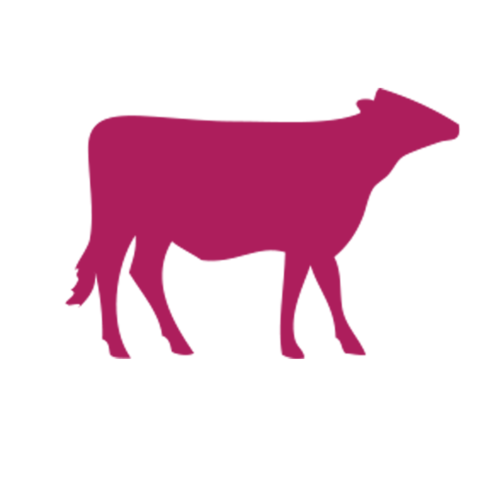 Beef
Beef Chicken
Chicken White Fish
White Fish Pork
Pork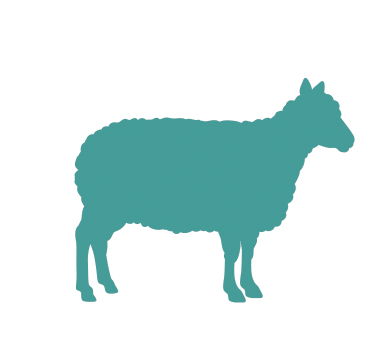 Lamb
Lamb Turkey
Turkey Duck
Duck All Products
All Products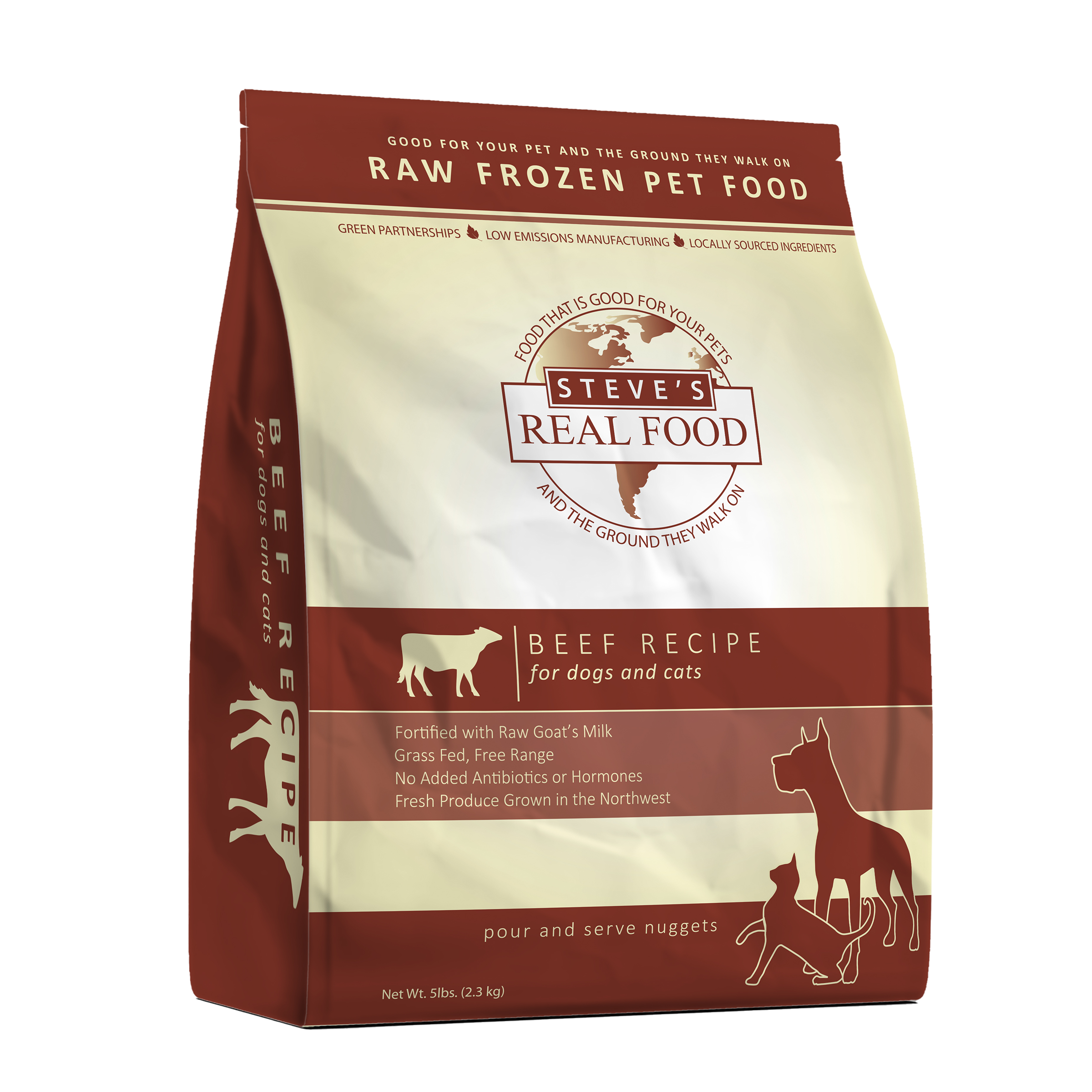 Frozen Raw Pet Food
Frozen Raw Pet Food
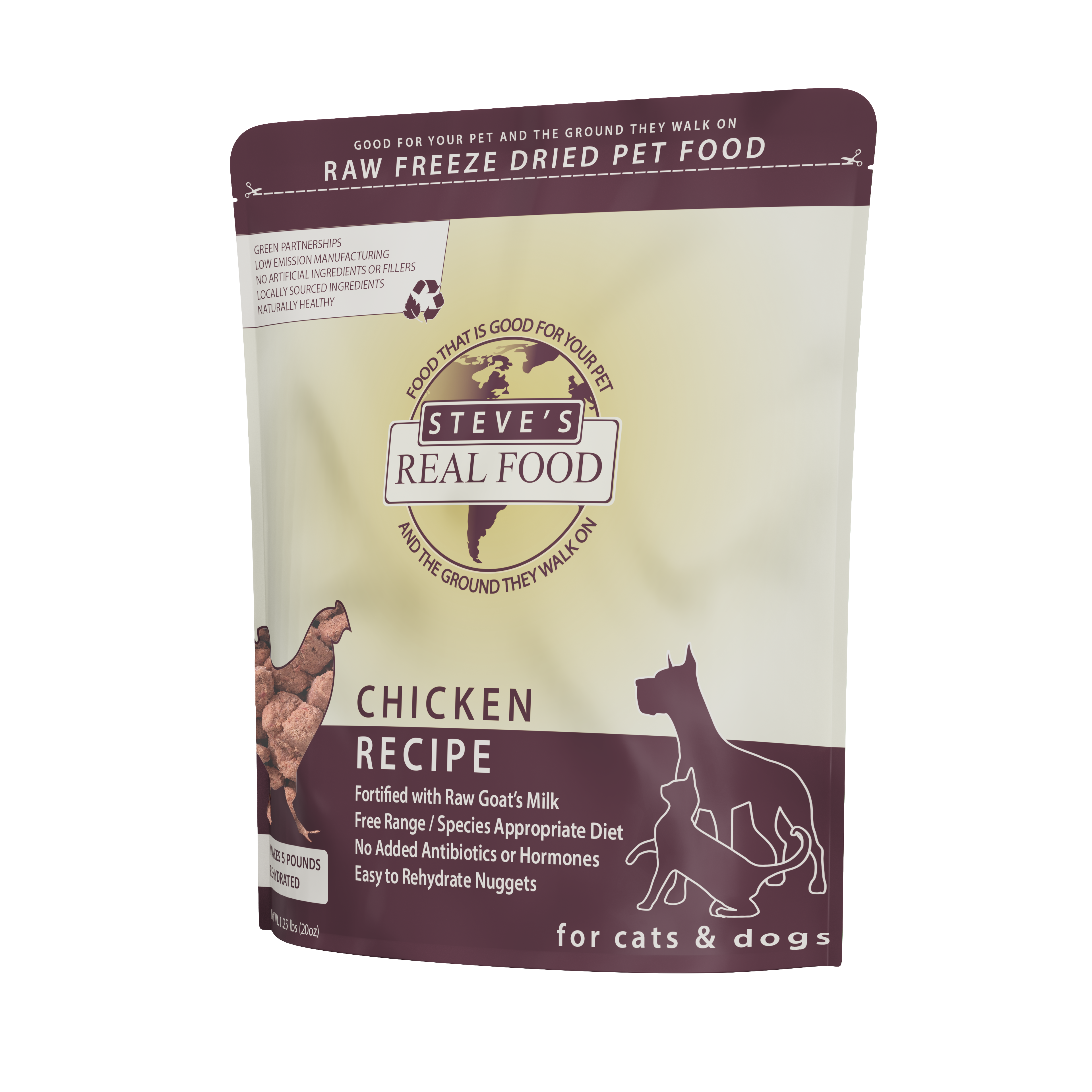 Freeze Dried Raw Pet Food
Freeze Dried Raw Pet Food
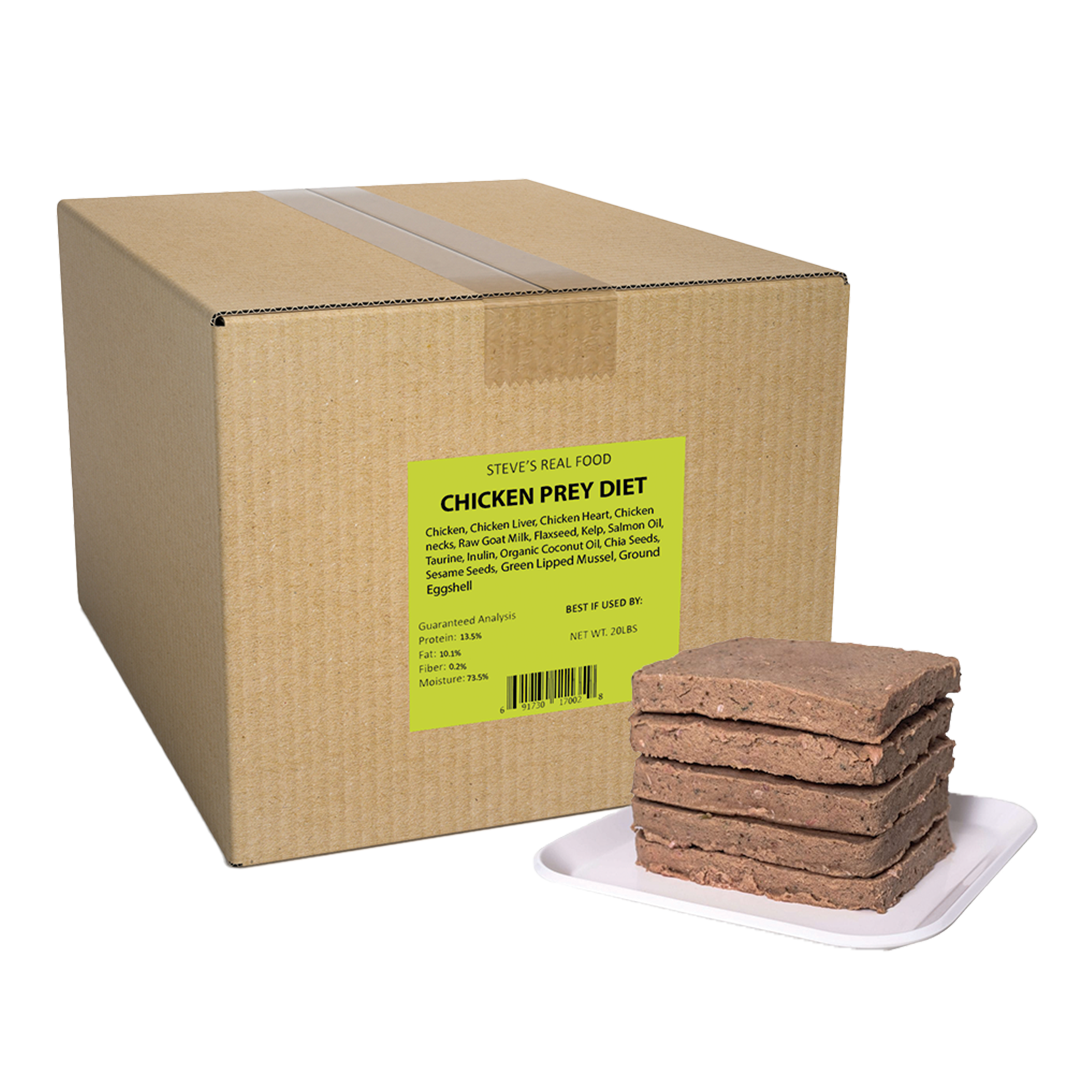 Frozen Prey Diet
Frozen Prey Diet
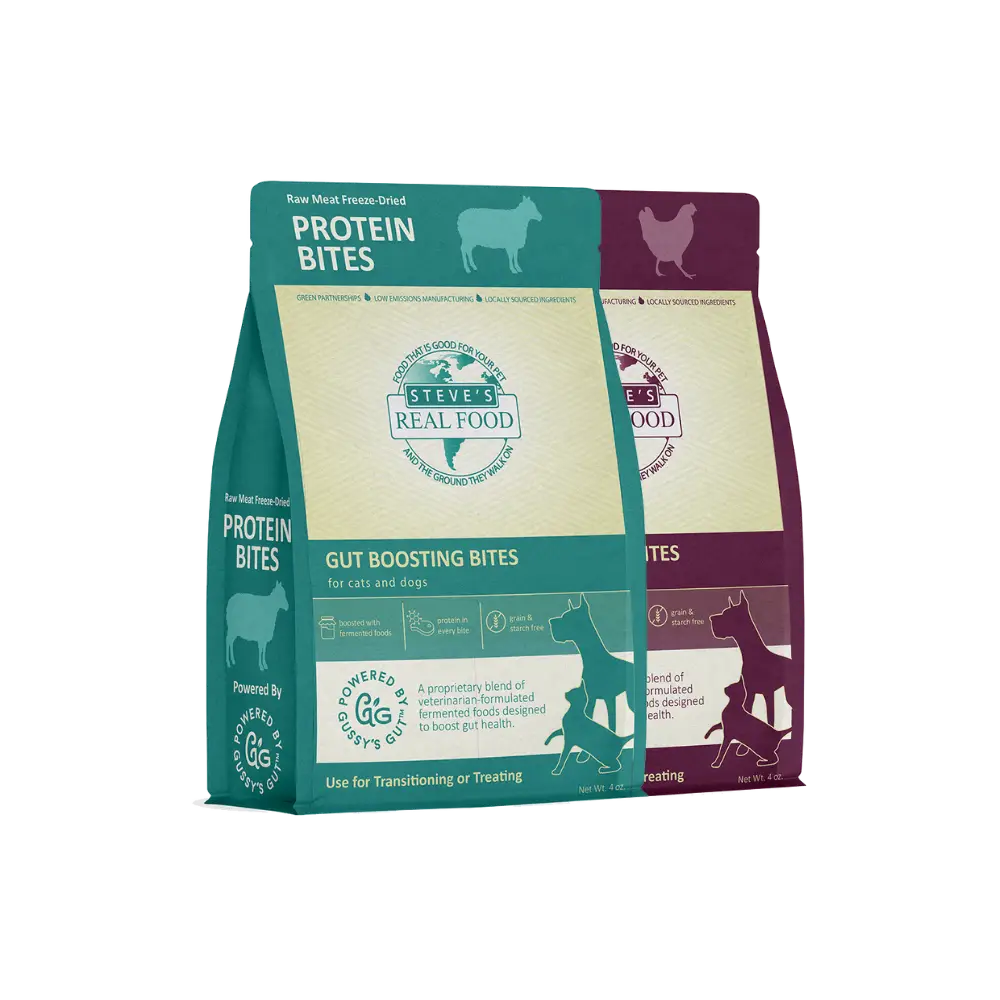 Freeze Dried Protein Bites
Freeze Dried Protein Bites
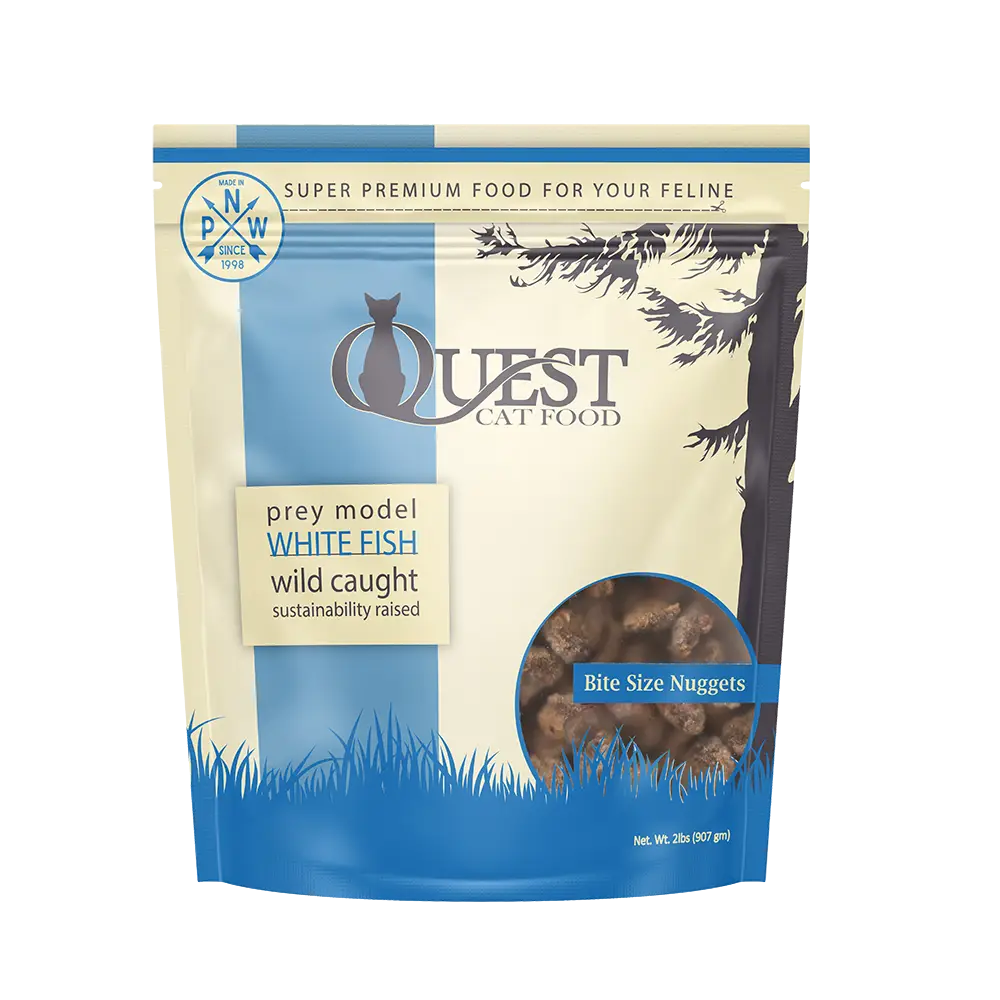 Frozen Quest
Frozen Quest
 Freeze Dried Quest
Freeze Dried Quest
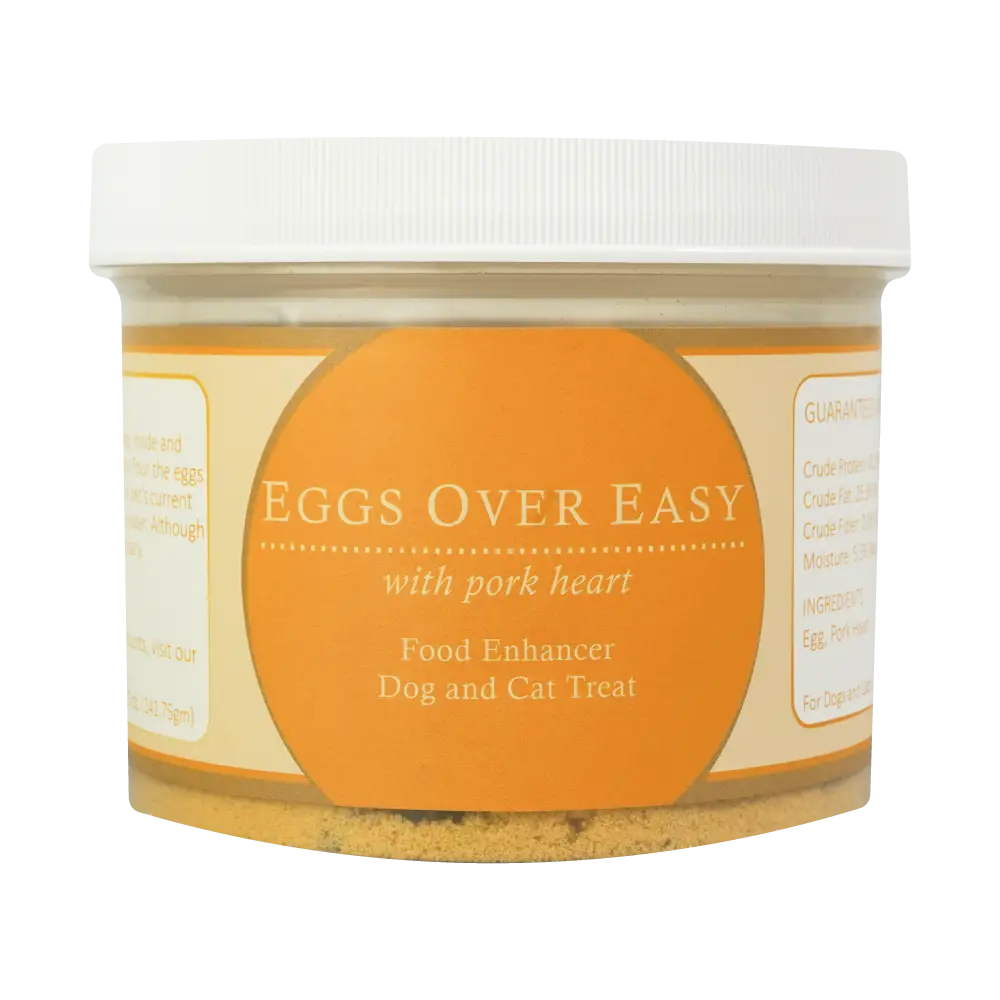 Eggs over Easy
Eggs over Easy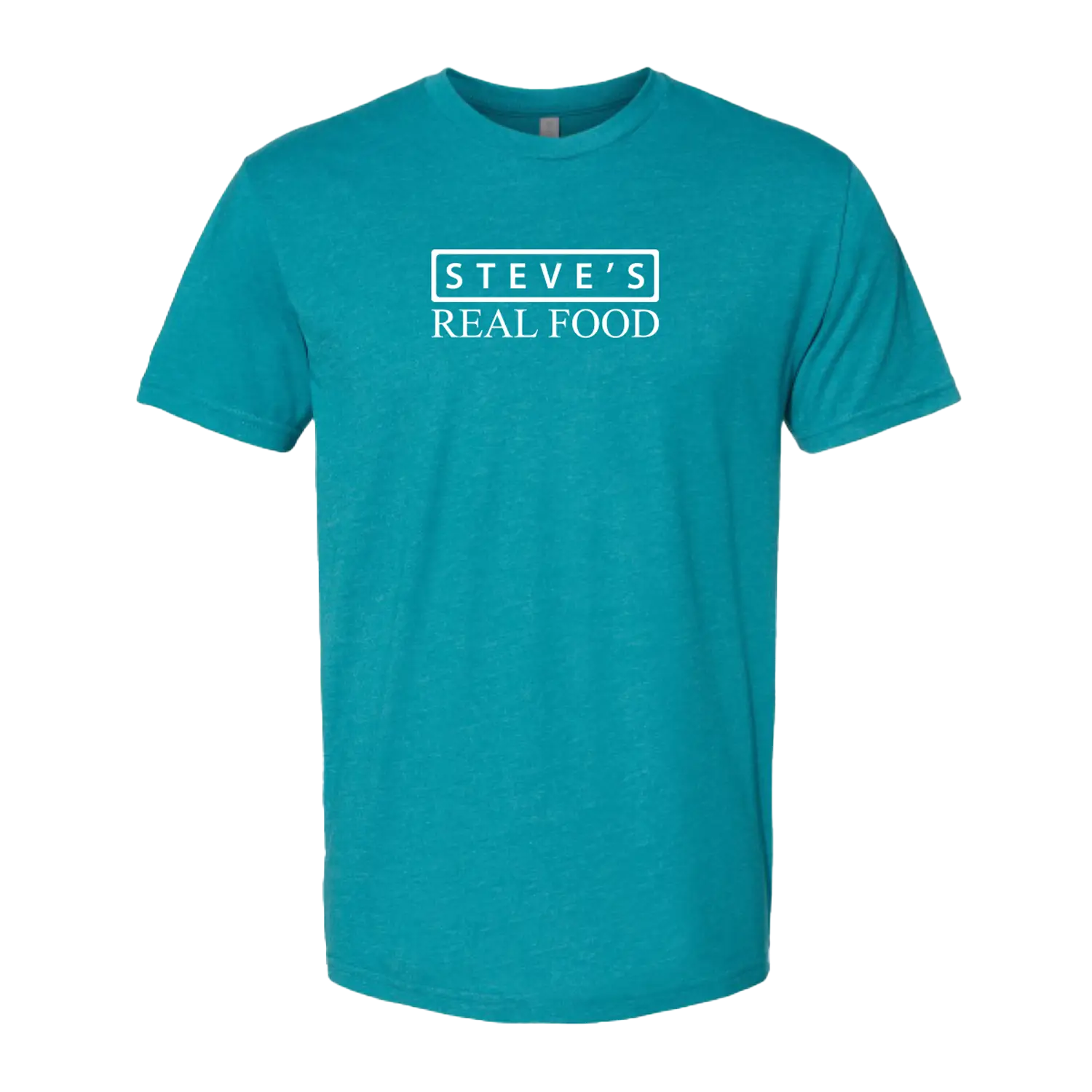 Steve's Merch
Steve's Merch 